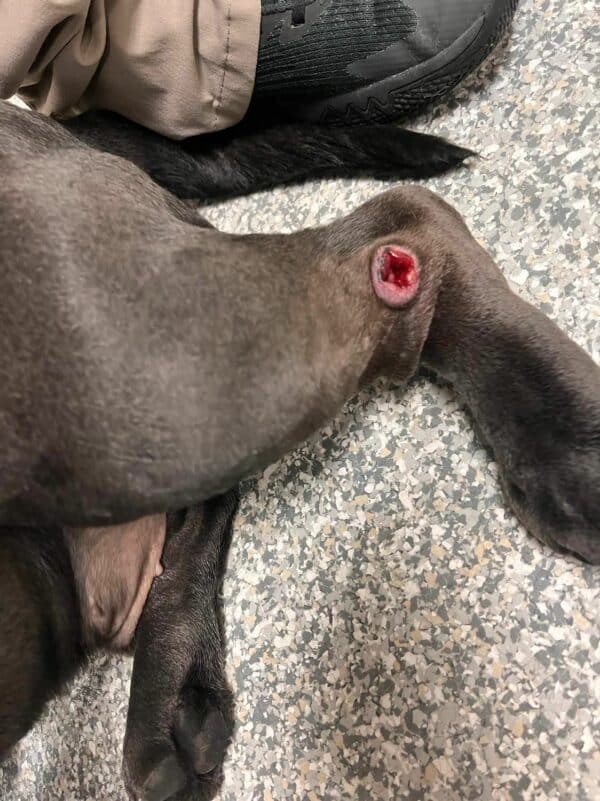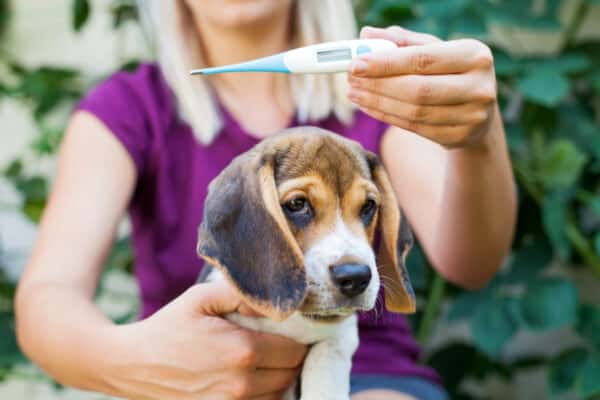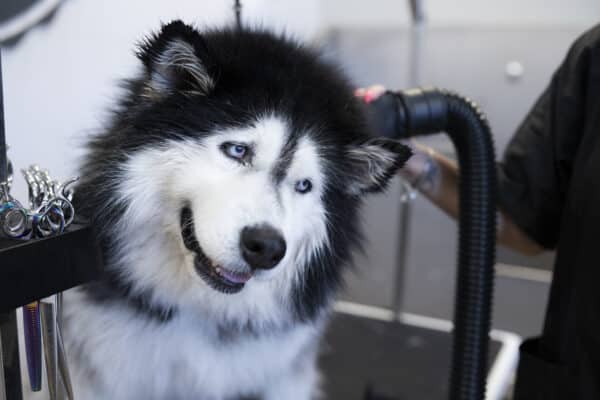If your dog is anything like mine, rolling in dirt is a daily adventure. My 2-year-old Terrier mix, Emmy, will go into the backyard with a perfectly clean coat and come back in with leaves and a worm stuck to her face.
Keeping our dogs clean, comfortable and healthy is part of being a responsible dog owner — and necessary for sanitary purposes if your dog sleeps on the couch or in your bed. Basic daily care includes brushing the coat, which can help lessen matting and shedding, and brushing your dog’s teeth to prevent periodontal disease.
But, if you’ve ever thought about taking your home grooming a step further, like giving your dog a bath, trimming his nails or giving him a quick sanitary trim, you’ll need a few things to ensure a safe and yip-free grooming session. The first is finding a non-slip surface above ground to reduce the risk of injury if your dog tries to jump off. If you plan to groom your dog regularly, invest in a portable grooming table with a tether feature to ensure your pup stays in place.
Time for a bath: Tips for bathing your dog at home
Most dogs need to be washed only once a month, unless they get sprayed by a skunk or roll in mud. “If you bathe them too much, it can offset the natural balance of the oils in their skin,” explains Marni Denenberg, New Jersey-based owner of Scenthound, a dog grooming company that focuses on wellness.
First, run your fingers through your dog’s coat to get a sense of its oil or dryness levels, and choose your shampoo based on the texture. If your dog spends a lot of time outdoors, use a good quality shampoo, which has gentle ingredients for more frequent baths.
A bathtub with a detachable hand sprayer is most convenient when reaching all the tricky spots, like behind the ears and under the belly, but if your dog has an aversion to getting wet, try different methods, including getting in the shower with them, Marni says.
“Make sure you put cotton balls in the ears,” she adds, which can help prevent ear infections by keeping the water out.
To tackle tangles, use a deep-conditioning treatment and, after the bath, dry the coat with a cool setting on the blow dryer.
Trimming those nails: Tips for trimming your dog’s nails
Choosing between a nail grinder and a nail clipper is a personal preference, both for the groomer and the dog, explains Diane Betelak, educator for Andis, a leading pet grooming equipment company. In general, the nail trimmer will get more length off quicker because you can clip the nail right to the desired length, compared to the grinder, which will leave a smoother edge but will take longer to use.
“Look at where the nail starts to hook, then cut at an angle just beyond that part,” Diane says.
For regular maintenance, trim once a month, taking small snips to avoid clipping the quick (the vein that grows in the nail and can be painful and bleed if cut). To stop bleeding, press a pea-sized amount of Kwik Stop, or another styptic powder, onto the nail. For nails that are already too long, trim once a week to force the quick back so you can trim the nail shorter. It’s not uncommon for dogs to squirm during nail trims. Find another person to hold the dog in place to avoid injury. For a calming effect, Marni suggests wrapping the dog in a towel like a baby, and clipping one paw at a time.
The sanitary trim
“If the hair is long in the back, it can trap some interesting things,” Marni explains.
To trim the hair surrounding the dog’s bottom, choose a blade that’s small and easy to operate in a delicate area, Diane advises. You can use either grooming scissors or a grooming trimmer shaver. Standing the dog on his hind legs, trim toward the genitalia using the edge of the blade.
“Always remember that you are using a sharp object that can easily cut or nick the skin,” Diane says.
Trim along the edge of the bottom, avoiding direct contact with the skin, to remove long hairs. Depending on how fast your dog’s hair grows, monthly maintenance should be sufficient.
Marni advises using sensitive cleansing wipes to keep the area clean between trims as well as rounded scissors for nervous hands.
Read: What is a Dog Sanitary Trim?
When to bring your dog to a professional groomer
And don’t hesitate to ask a professional groomer for advice if you’re unsure about a technique, especially while you’re learning your dog’s comfort levels around various sharp tools.
Remember, advises Marni, the different areas of the dog (ears, teeth, nails and coat) should be addressed regularly, and sometimes independently from one another. She says, “Whether it’s done at home or with the help of a professional, it will keep the dog cleaner.”
Read: 5 Times You Need a Professional Dog Groomer
Keep those teeth clean
Cleaning a dog’s teeth isn’t always easy. These products can make that a little easier.
ProDen PlaqueOff System Crunchy Dental Bites Chicken Flavor; $8.99. chewy.com
Tropiclean Fresh Breath Drops; $6.99. chewy.com
Other recommended grooming products:
Flying Pig Foldable Competition Grooming Table; $149. amazon.com
ConairPRO Deluxe Indoor/Outdoor Pet Washer; $22.20. amazon.com
Easy Clip Mini II Pet Clipper/Trimmer; $30. andis.com






